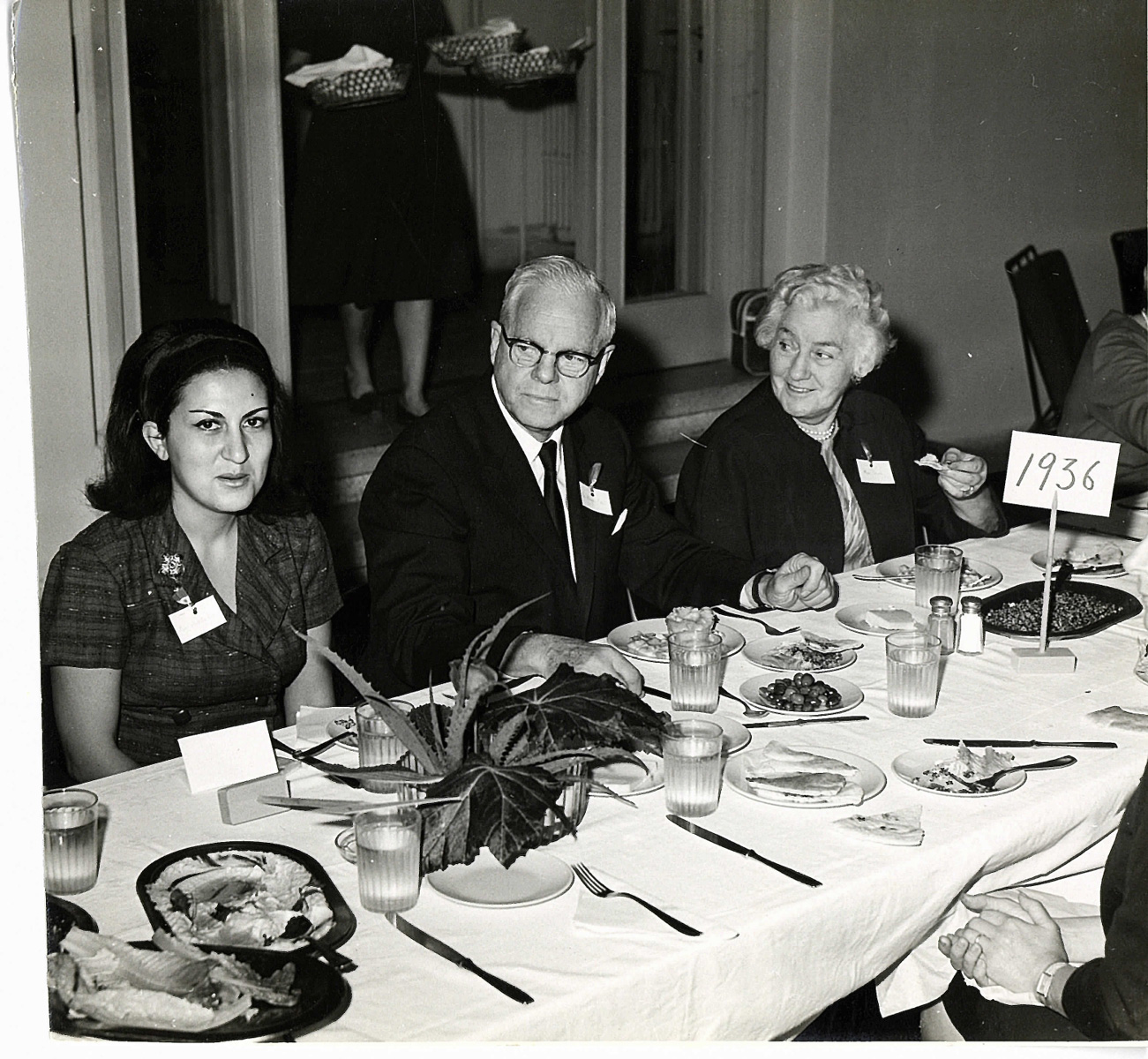Nabila Jabbour Fares
BA ’56
I was not yet 17 when I left my hometown to live in the Beirut College for Women (BCW) Residence Hall. I am not exaggerating when I say I fell in love with my alma mater from the day I joined in 1953.
That was a special year for me, not only because I had come to BCW but also because it was the year women got the right to vote in Lebanon. I still remember our president then, Mr. William Stoltzfus, trimming the trees around the campus, Rushdi Maalouf, Rose Ghorayeb, Marie Sabri, Rhoda Orme, Thurayya Malhas, Marion Hope, our advisor who used to call us her 12 daughters, and Najla Dabaghi, who provided our boarding meals and used to say to me “ma btishba3i tabbouleh ya nabbouleh?” because I asked for tabbouleh every day.
Once a month, I acted in a play at Irwin Hall. Mrs. Hope thought I was talented enough for Hollywood. On my graduation day, she told my father who did not speak English that I should go to Hollywood. When I translated to my father, he blurted out “Me accept no!”
Of the memorable events during my years at LAU was when we camped in Ain Yaacoub in the Akkar region for 45 days during the summer of 1955 with AUB MD and agriculture students to acquire rural social work training. We stayed in the camp with our advisors and had to prepare daily reports every afternoon. Next to the camp was a cafe owned by the mayor who played loud Arabic songs. When our advisors signed a petition asking him to turn down the music so we could concentrate on our work, he threatened to burn down the camp. We spent the rest of our stay worrying that he might do so. I never thought I would one day become the first woman mayor (mukhtara) in Lebanon but I made sure never to play loud Arabic songs!
Another memory was when my class and AUB medical students were recruited to rescue the people in Shhim and Maasser El Chouf after the 1956 earthquake.
But one of the funniest incidents happened during my last days before graduation. A classmate had invited us for dinner at her house in Achrafieh. As my boarding friends used to see my uncles pick me up every weekend to spend the weekend with them in Achrafieh, they asked me to ride with Mr. Stoltzfus and show him the way. Little did they know that I had no sense of direction. Suddenly, we found ourselves in an alleyway in Achrafieh, blazing with colored lights. My friends started cursing me in Arabic while Mr. Stoltzfus sat enjoying and commenting on the beautiful lighting! “Where are we Nabila?” he asked. I was too ashamed to tell him we were lost in the prostitutes’ zone.
Looking back on my life, I was lucky to have had my family and my BCW which equipped me with the high principles and training in all social humanitarian fields. Nothing shocked me when I left university because I’d been well-prepared for the world. I had learned to rely on myself and be an active community member. I am so proud of my alma mater, my children and all the great people I encountered along my journey, Dr. Charles Malik, Said Akl, Edmond Naïm, Ounsi El Hajj, and many others.

